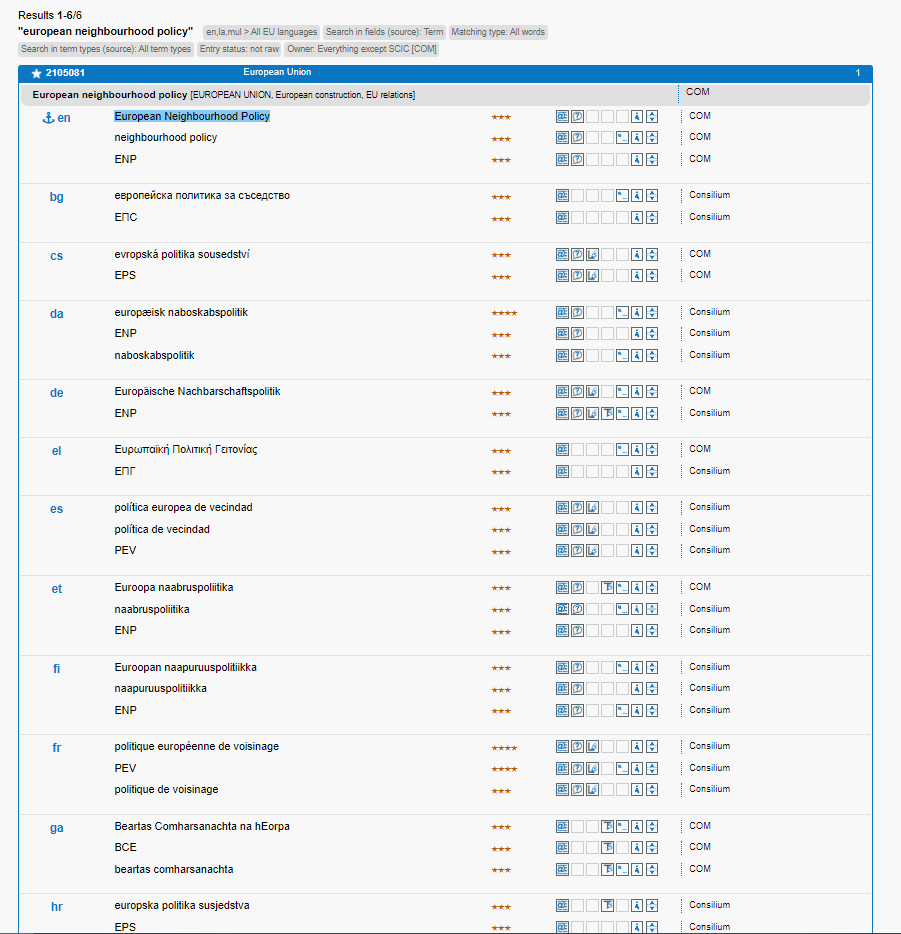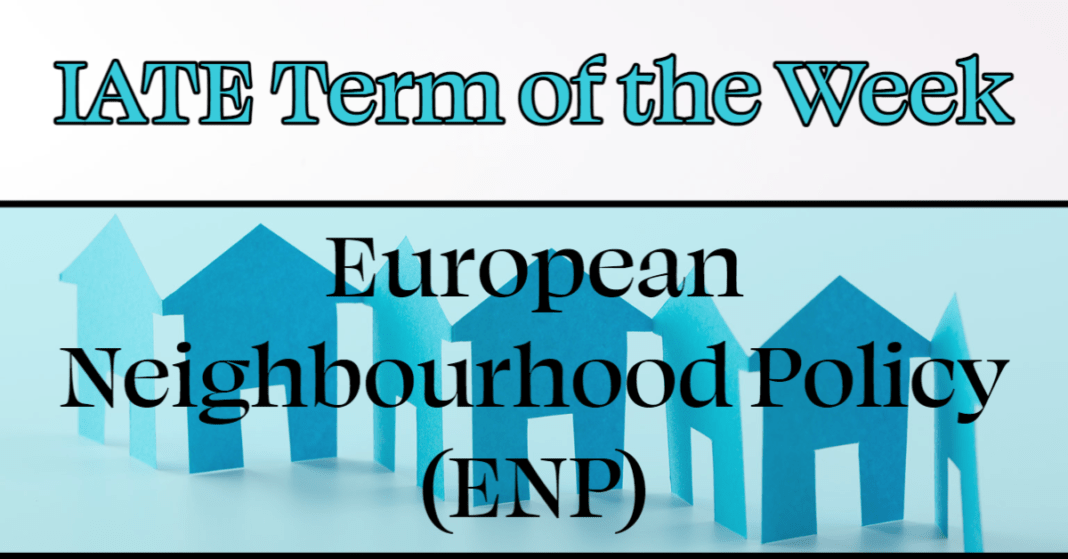The European Neighbourhood Policy (ENP) is a crucial component of the European Union’s external relations strategy, designed to enhance cooperation, stability, and prosperity with countries in Europe’s neighbouring regions. In IATE, this term is defined as a ”policy launched in 2004 and reviewed in 2011 to serve as a framework for the EU’s relations with the EU’s eastern and southern neighbours”.

Since its establishment in 2004, the ENP has served as a framework for engagement with countries on the EU’s eastern and southern borders. It is intended to stop the formation of new lines of division between the expanded EU and its neighbours. The European Commission initially presented the concept in March 2003.
The European Parliament plays a significant role in the formulation and implementation of the ENP. Through its committees, such as the Committee on Foreign Affairs and the Subcommittee on Human Rights, the Parliament conducts debates, organises hearings, and adopts resolutions on the ENP’s progress and effectiveness.
The European Neighbourhood Policy is a vital instrument for the European Union’s relations with its neighbouring regions. The European Parliament’s involvement strengthens the policy’s democratic legitimacy and oversight, ensuring that it reflects the values and interests of EU citizens. Through its active participation, the Parliament contributes to shaping the ENP’s objectives, monitoring its implementation, and fostering dialogue with partner countries. This policy affects the following countries:
– Countries east of the EU: Armenia, Azerbaijan, Belarus*, Georgia, Moldova and Ukraine.
*Statistical cooperation with Belarus has been suspended as of March 2022.
– Countries south of the EU: Algeria, Egypt, Israel, Jordan, Lebanon, Libya, Morocco, Palestine, Syria and Tunisia.
Moreover, the European Parliament has the authority to approve or reject international agreements resulting from the ENP. This ensures that the Parliament performs a democratic check on the executive branch and safeguards the interests of EU citizens. The Parliament’s involvement ensures that the ENP remains accountable, transparent, and aligned with the values and principles of the EU.
References
EEAS. (2021, July). European Neighbourhood Policy. Retrieved from The Diplomatic Service of the European Union: https://www.eeas.europa.eu/eeas/european-neighbourhood-policy_en#:~:text=The%20European%20Neighbourhood%20Policy%20(ENP,their%20mutual%20benefit%20and%20interest.
European Comission. (2022, January). European Neighbourhood Policy: What is it? Retrieved from European Neighbourhood Policy and Enlargement Negotiations (DG NEAR): https://neighbourhood-enlargement.ec.europa.eu/european-neighbourhood-policy_en
European Parliament. (2022, August). The European Neighbourhood Policy. Retrieved from Fact Sheets on the European Union: https://www.europarl.europa.eu/factsheets/en/sheet/170/the-european-neighbourhood-policy
Eurostat. (2022). European Neighbourhood Policy Countries (ENP). Retrieved from Eurostat: https://ec.europa.eu/eurostat/web/european-neighbourhood-policy/background
Unesco. (2017). European Neighbourhood Policy (ENP). Retrieved from Plateforme de suivi des politiques: https://en.unesco.org/creativity/policy-monitoring-platform/european-neighbourhood-policy-enp
Written by Carmen del Campo Hermida

Born in Madrid, Spain, Carmen holds a Double Degree in Translation and Interpreting and Bachelor in Global Communication. She has also studied a Degree on Content Marketing and Social Media. She has been combining her studies with some part-time jobs, which has allowed her to appreciate little things in life, such as spending time with her family and friends and enjoying her hobbies. She is keen on learning from other people and cultures and wishes to get to travel around the world someday.

